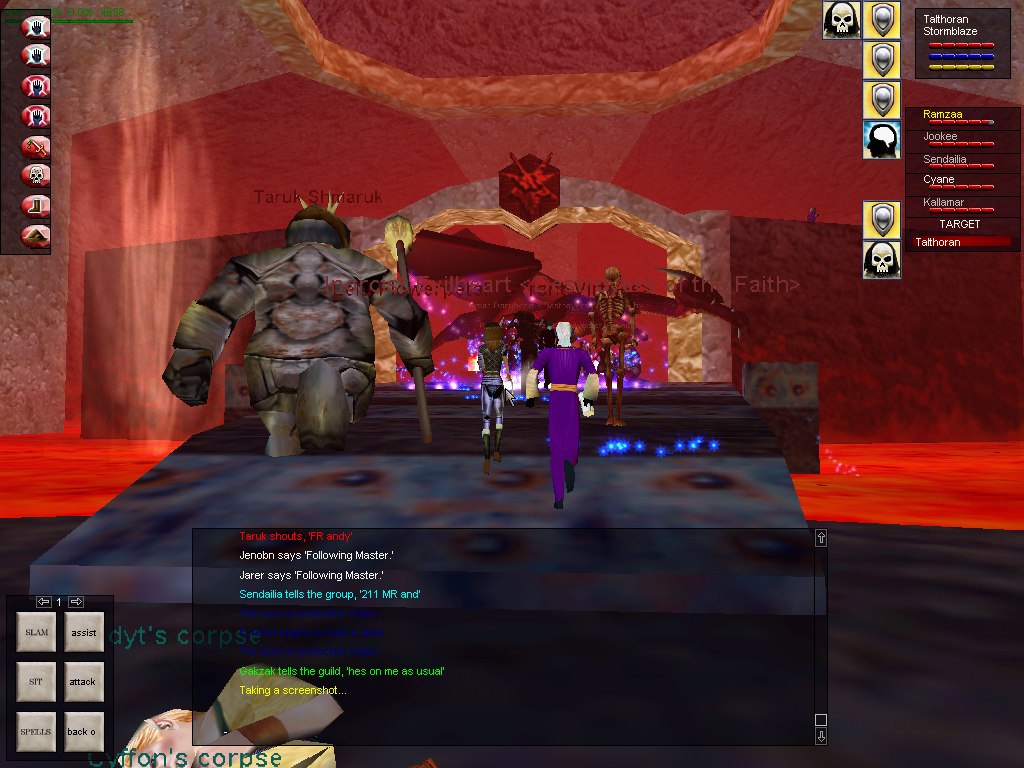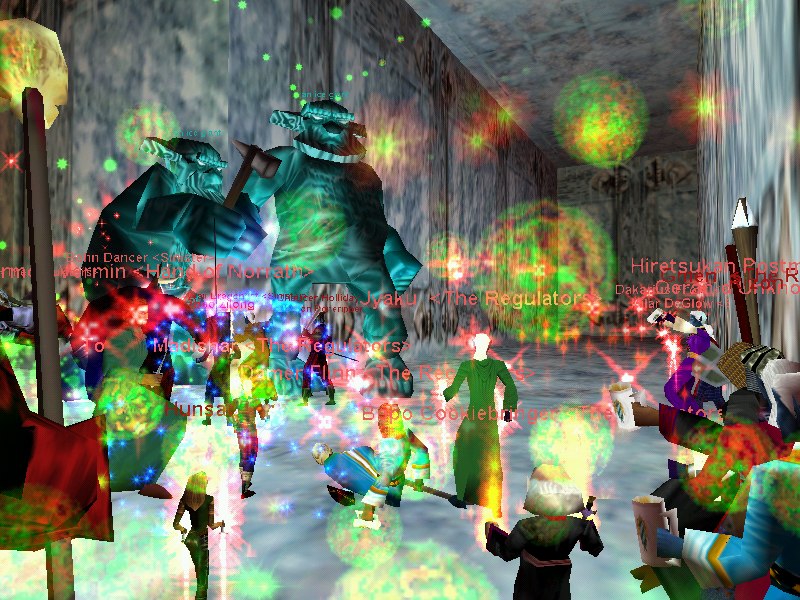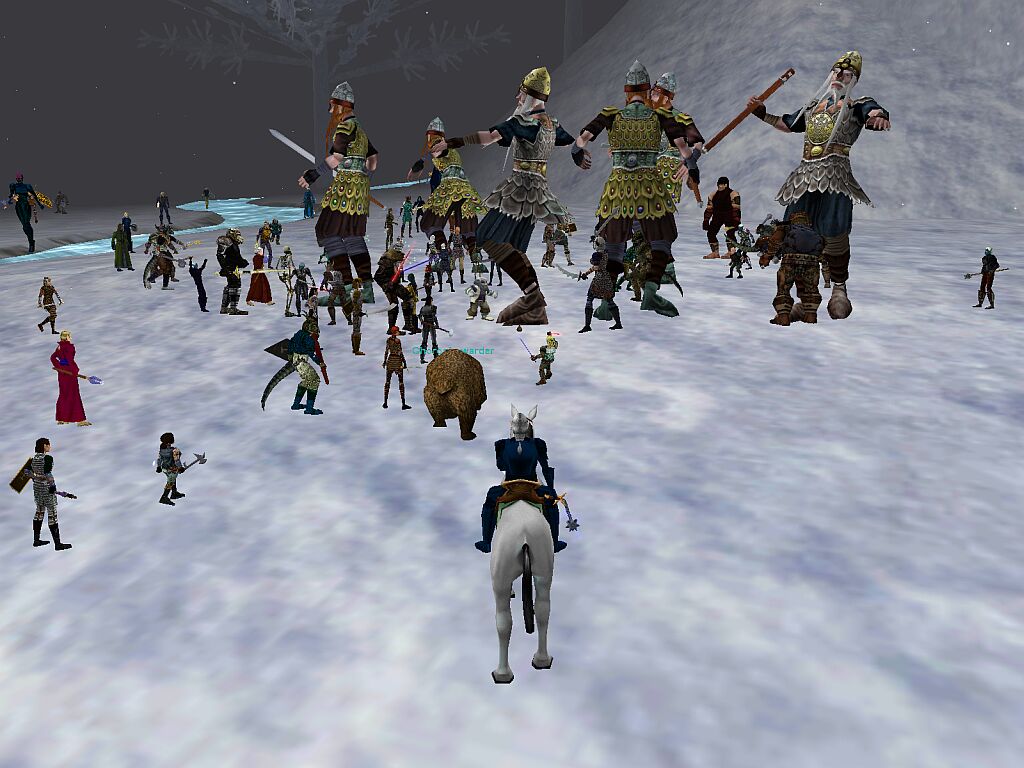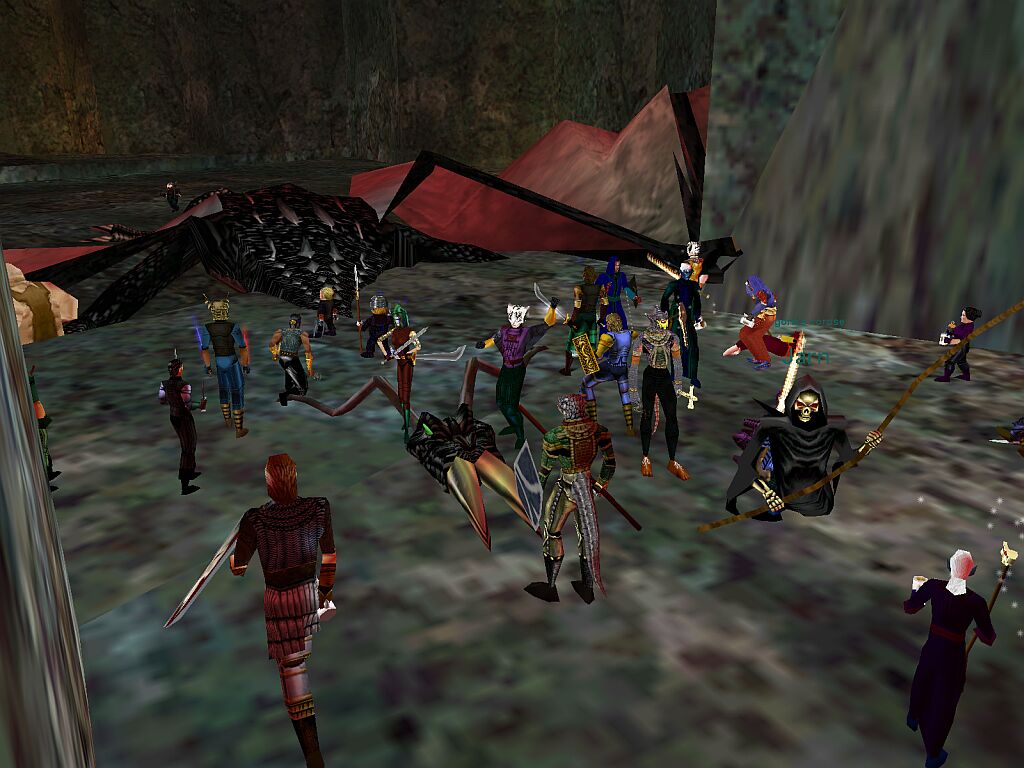
Extremely addictive virtual world.
http://en.wikipedia.org/wiki/EverQuest
EverQuest (EQ) is a massively multiplayer online role-playing game (MMORPG) released in 1999. It was developed by Verant Interactive and published by Sony Online Entertainment. The original design is credited to Brad McQuaid, Steve Clover, and Bill Trost. To play, one must initially pay for the game software and a monthly fee.
In the game, players move about a Tolkienesque fantasy world of sword and sorcery, fighting monsters and enemies for treasure and experience points and interacting with other players. As they progress, players advance in rank, gaining power and abilities. Players also can procure powerful items through quests, or by gathering raw materials to make into useful (and not as useful, but fun) items. In structure and rules, the game is a direct descendant of the famed Dungeons & Dragons role-playing game. Many of the elements from EverQuest have also been drawn from text-based MUD (multi-user dungeon) games, especially DikuMUD.
EverQuest launched with some technical difficulties on March 16, 1999 but quickly became the most successful MMORPG on the market. By the end of the year, it had surpassed the leading competitor, Ultima Online in number of subscriptions. Numbers continued rising at a steady rate until mid-2001 when growth slowed. As of 2004, Sony reports subscription numbers close to 450,000. It has the most subscribers of any MMORPG in the United States and Europe, but is far behind the global leader Lineage, which counts millions of subscribers, most of them in South Korea.
EverQuest has lived through its share of controversy, much of it shared by the entire MMORPG genre. One example involves the sale of in-game objects for real currency (often through eBay). The developers of EQ have always forbidden the practice and in January 2001 asked eBay to stop listing such auctions. The game has always had problems with exploiting, cheating, and hacking. Patches have stopped the most serious cheats, but controversy also lies in Verant's policies sometimes seen by players as heavy-handed or subjective. Critics of the gameplay call it "simplistic" and a satirical hoax 'game' called Progress Quest has appeared on the Internet.
The game is renowned and berated (by some psychologists specializing in computer addiction) for its addictive qualities. Many refer to it half-jokingly as "EverCrack" (a reference to crack cocaine, an addictive recreational drug); EQ is very time-consuming for many people, and there have been several well-publicized suicides of EverQuest users. Relationships broken because of obsessive playing resulted in the creation of an online support group called EverQuest Widows. The capacity of the game to absorb time and money, and to distract players from a possibly-dull life on the other side of the screen, are appealing features to its users. However, the same could be said for any other addictive and obsessive activity. Sony has tried to combat cash trading and cheating, but continues to advertise the game's addictive nature.
http://www.nukewinter.com/screens/pc/eq/index.shtml
screenshotshttp://loralciriclight.com/images/index.php
more screenshots


